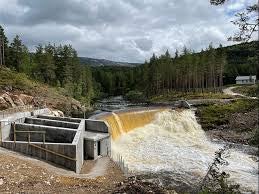Norwegian firm Statkraft has announced it is to invest billions in renewable energy over the next four years, including international hydropower projects.
News of future investments come after the Norwegian Parliament adopted a plan to bolster Statkraft SF’s equity by NOK 5 billion 11 December 2014, while the Ministry of Trade, Industry and Fisheries also agreed to reduce its overall dividend from Statkraft by NOK 5 billion over the 2016-2018 period.
With an equity increase totalling NOK 10 billion, Statkraft will be able to acquire more capital in the market and make investments totalling approximately NOK 60 billion. As a result, Statkraft said it has established a strategy that calls for major investments in renewable energy in Norway, Europe and emerging markets in Asia and South America.
"Statkraft has a long-term ambition to grow as an international company within clean energy," said CEO Christian Rynning-Tønnesen. "In addition to implementing the investment decisions we have made, we are working on concrete projects in all countries where we operate. The projects are primarily within hydropower and wind power, but we are also exploring opportunities within solar energy and biomass."
This year, the company will open hydropower plants Kargi in Turkey and Cheves in Peru. Kargi, which is being built in the Corum province in northern Turkey, will have an installed capacity of 102MW and will be able to supply electricity to 150,000 households. Cheves is located in the Peruvian Andes and will have a capacity of 168MW. It will be able to supply 840 GWh of clean hydropower per year, which will replace fossil fuel-burning thermal power plants.
The company will also decide this year whether it will continue with the Rapay hydropower project in Peru. This project is divided into two phases, and could yield a total of 162MW of new hydropower.
There are also plans in place for further growth in India and Brazil. Statkraft is working with Tata Power on plans to develop the 420MW hydropower project Dugar in the Indian state of Himachal Pradesh. In Brazil, Statkraft is working to develop its activities within hydropower and wind power. Market operations are also an important part of further efforts in both countries.






